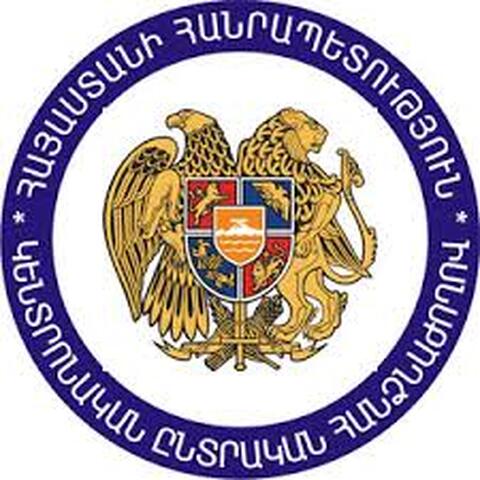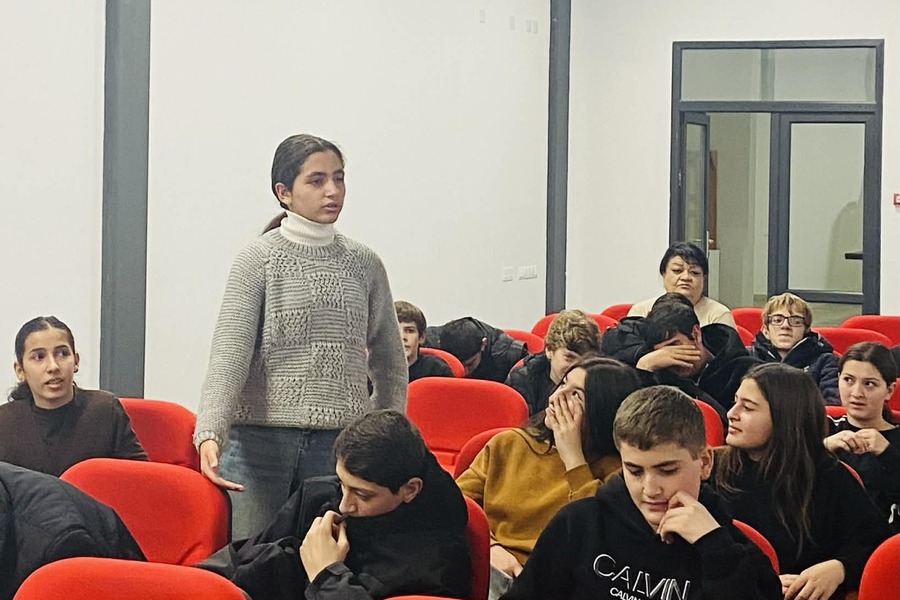Statement on the formation of the Central Electoral Commission
On October 6, 2016 the National Assembly of Armenia elected Central Electoral Commission (CEC) Chairman and members, which is actually the current CEC composition. The given decision of the legislature of Armenia is of serious concern for ensuring the electoral reform and lawfulness of the forthcoming elections.
Pursuant to the Electoral Code of the Republic of Armenia CEC is an independent state authority which shall organize the elections, as well as exercise supervision over the lawfulness thereof, thus bearing the responsibility for the lawfulness of the electoral processes in the Republic of Armenia.
The composition of the current CEC, elected (actually reappointed) by the National Assembly of Armenia, including CEC Chairman, has been appointed by the President of the Republic of Armenia since 2011. The compliance of parliamentary elections of 2012, presidential election of 2013, Yerevan city council elections of 2013 and hundreds of local government elections, as well as Constitutional referendum of 2015 conducted within that period with the standards of free and fair elections is questionable.
During 2011-2016 the current composition of CEC has failed its responsibility to properly organize and exercise supervision of elections, provided by the Electoral Code of Armenia, subsequently, the ensuring and protection of the electoral right in the Republic of Armenia. In particular,
- Since 2011 no significant improvement has been noted in the work of the precinct and territorial electoral commissions (PEC and TEC) monitored by election observation missions, which implies that the professional trainings provided by CEC were not sufficiently effective. The irregularities observed in keeping records in the journals of records and in the procedure of taking turns of the commission members, the presence of campaign materials or unauthorized people in the polling station, and their interference in the electoral processes, failing to register violations of the Electoral Code during voting process and showing inaction, as well as the irregularities during summarization of the election results and filing protocols with wrong results are instances of vivid manifestation of the above mentioned. The mentioned manifestations verify of either low level of professional preparation of the commissions or intentional frauds or inactions.
- As a rule, the protocols summing up election results are posted on the website after “proofreading” them, which is not allowed by law. Thus, as a result of studying extracts from protocols of constitutional referendum, in about 440 out of 475 precincts some problems were revealed, including absence of baseline information, arithmetic irregularities, absence of commission members’ signatures, and noncompliance of PEC protocols with the official data published by CEC, etc.
- The complaints on irregularities brought to CEC by observers, observer organizations, and other participants in the electoral processes during 2013-2016 elections against the decisions of PECs or TECs, their actions or inaction were not duly examined, as CEC, neglecting the ban of considering applications or complaints due to formalistic mistakes, as well as giving reasons that the observers and NGOs have no legal standing for filing complaints, rejected to initiate administrative proceedings and due consideration of the complaints. Consequently, the institute of complaint was ineffective mostly because of the workstyle adopted by CEC’s current composition, and therefore the positive obligation to ensure lawfulness of the electoral right and electoral process was not carried out. It should be mentioned as well that CEC has failed to officially initiate proceedings on its own initiative based on the facts that have become known to it, thus violating its legislative obligations.
- CEC, as higher authority over electoral commissions, has never taken measures to register violations committed by its subordinate commissions, bringing the people guilty of them to responsibility.
- CEC failed to provide professional discussions and contest of opinions, though pursuant to law, the members of commission nominated by various bodies should provide checks and balances. All the decisions were adopted unanimously, at the minimum, casting doubt on the independence and self-sufficiency of the current composition of CEC.
- The deficiencies in organizing and exercising supervision over the electoral processes, as well as ineffectiveness of complaint have been repeatedly and continuously mentioned in the reports of local and international observation organizations, as well as by political organizations. They gave way for constant doubts and claims on electoral fraud and were the key factors casting doubt on the legitimacy of the bodies formed as a result of elections.
Turning a blind eye to these failures and nomination and election of the same composition of CEC implies that the authorities, and particularly the political parties or the MPs that voted in for it are pleased with CEC work and are not concerned about people’s trust and legitimacy, which is certainly not surprising given permanent and systematized falsification of election results.
The nomination and election of the same composition of CEC also imply that that the authorities are concerned about unwanted outcome for themselves in the forthcoming parliamentary elections and parallel with a number of tools introduced by the Electoral Code, in particular, restriction of the right of observers and mass media representatives and use of proportional territorial lists attempt to strengthen the base for reproduction of government through the composition of CEC that served them successfully and skillfully and to their advantage.
Drastic changes are needed for enhancing public trust in the electoral system, including as a core measure new composition of the CEC that would be independent and able to organize lawful elections, ensure due protection of the electoral right and not be discredited by doubts on participation in electoral fraud.
“Transparency International Anticorruption Center” NGO
“Europe in Law Association” NGO
“Collaboration for Democracy” NGO
“Helsinki Citizens’ Assembly Vanadzor office” NGO
“Open Society Foundations - Armenia” Foundation
“Yerevan Press Club” NGO
“Foundation Against the Violation of Law” NGO
“Khoran Ard” Intellectual Centre NGO
“Union of Informed Citizens” NGO
“Helsinki Committee of Armenia” NGO
"Analytical Centre on Globalization and Regional Cooperation" NGO
"Peace Dialogue" NGO
"LogoS" Human Rights Defence NGO
"Union of Lorians" NGO
“Rights Information Center” NGO
“Committee to Protect Freedom of Expression” NGO
"Supporting Equal Opportunities" Fund






